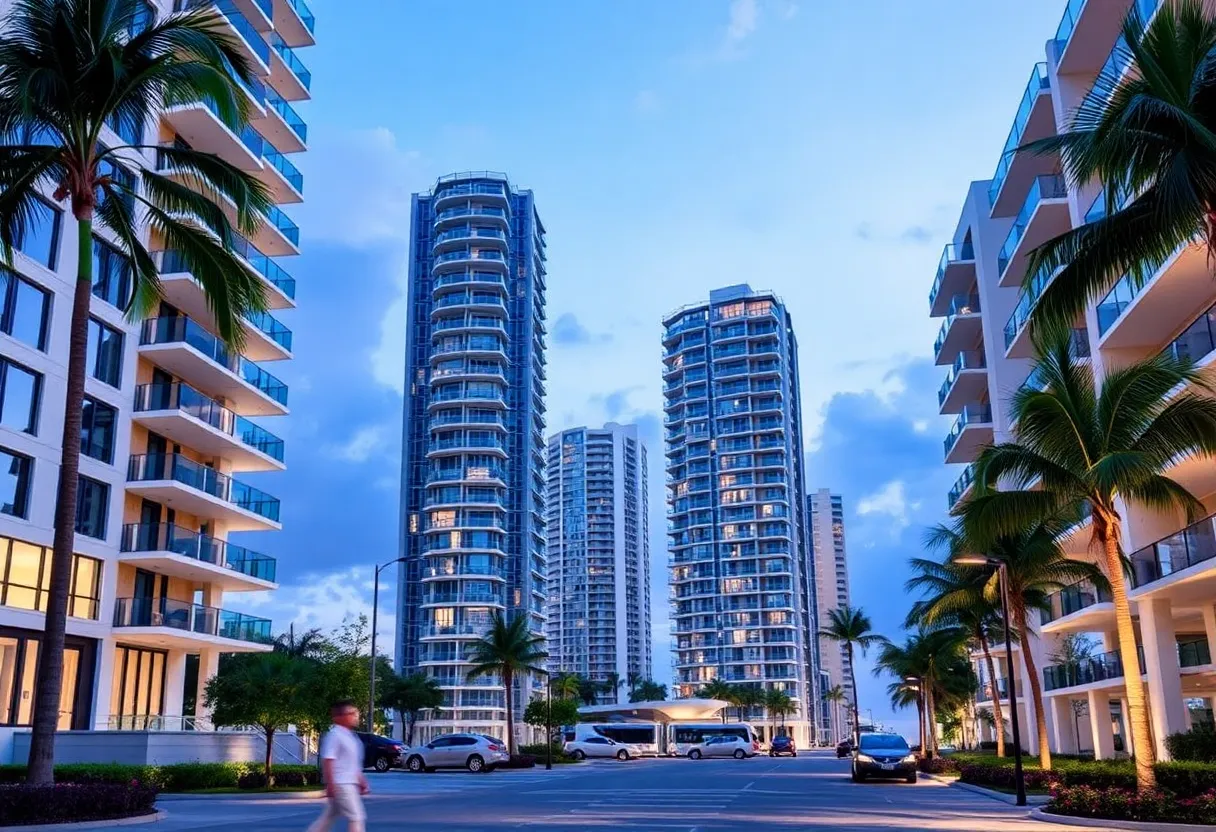New Florida Law Impacts Condominiums Following Champlain Towers Collapse
Miami, Florida – A new law aimed at enhancing safety and accountability in older condominium buildings has stirred concern among industry professionals, with implications for sales prices and the financial stability of current owners. The legislation mandates that all condo buildings that are at least three stories tall undergo engineering safety inspections and funding reserve studies by December 31, 2023.
Who is Affected
The law targets Florida’s estimated 1.54 million condo units in nearly 27,000 associations, particularly affecting units in densely populated Miami-Dade, Broward, and Palm Beach counties. This regulation could influence about 70% of the state’s condo stock.
What the Law Requires
The new law establishes that condominium boards are required to collect the necessary funds for maintenance and repairs, conduct engineering inspections every decade, and specifically address safety concerns that emerged after the tragic 2021 Champlain Towers South collapse, which claimed the lives of 98 individuals. This incident raised awareness of the risks associated with aging structures, prompting legislators to act.
When Will the Changes Take Effect?
Condominium boards must complete initial inspections and reserve studies by December 31, 2023. Although the law’s implementation has already begun, the full impact is anticipated to unfold within the coming months as associations adjust their budgets and operational protocols.
Why the Law Was Enacted
Lawmakers initiated this mandate to prioritize the safety of residents living in older condominium buildings following the collapse, a tragedy that has had lasting implications for property owners. With safety becoming a paramount concern, it is expected that this regulation will not only safeguard residents but also reshape the real estate landscape in regions with older condo stock.
The Market Response
The implementation of this law is already reflected in the condo market. Recent data indicates that the summer buying season recorded the fewest sales in Greater Miami in 15 years. Sales dropped by 18% compared to last year, further exacerbated by existing economic conditions such as high interest rates.
Financial Strain on Owners
As condo boards revise budgets to accommodate reserve collections, many unit owners, especially retirees on fixed incomes, are facing increased monthly fees. These adjustments may result in special assessments—a financial burden for those already struggling with rising insurance costs and overall living expenses.
The Future of Condo Ownership
With the introduction of mandatory inspections, market dynamics are shifting. Buyers can now access inspection findings, allowing them to negotiate prices based on expected condominium fees. Experts suggest that while prices for newer units may rise, older buildings could see their values diminish, potentially becoming depreciating assets.
Industry Outlook
As real estate agents reassess Florida’s condominium listings amid these changes, competition could tighten, especially for properties with outdated infrastructures. The possibility of developers acquiring aging buildings for redevelopment into newer structures has also surfaced, altering the long-term complexion of neighborhoods.
In conclusion, the ramifications of the new law extend well beyond safety measures, influencing financial obligations and market viability for thousands of condo owners in Florida. Meeting regulatory deadlines and adapting to evolving dynamics remains crucial as stakeholders navigate the new landscape created by the aftermath of the Champlain Towers tragedy.







